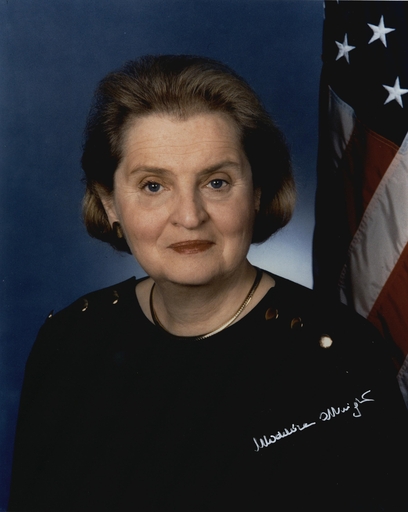
Former United States Secretary of State, of Czech-Jewish descent. She contributed to the expansion of NATO into the countries of the former Eastern Bloc.
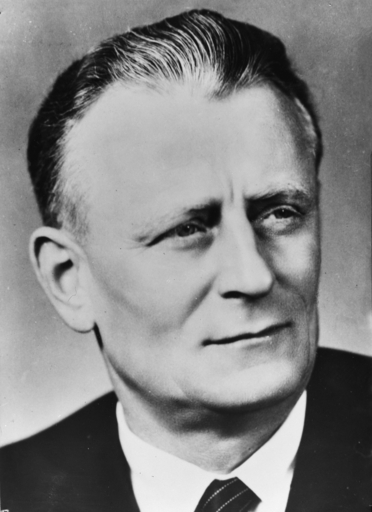
The third president of communist Czechoslovakia, in office from 1957 until 1968. He based his political career on connections with Moscow.
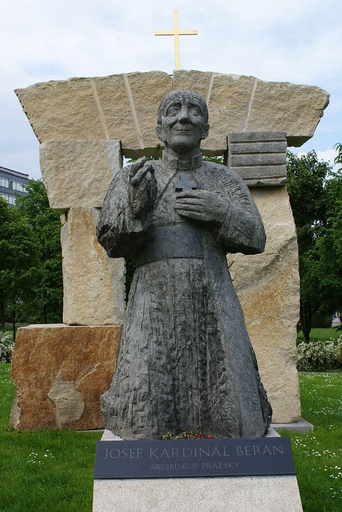
Catholic priest, cardinal and Archbishop of Prague, political prisoner in Nazi and communist regimes.
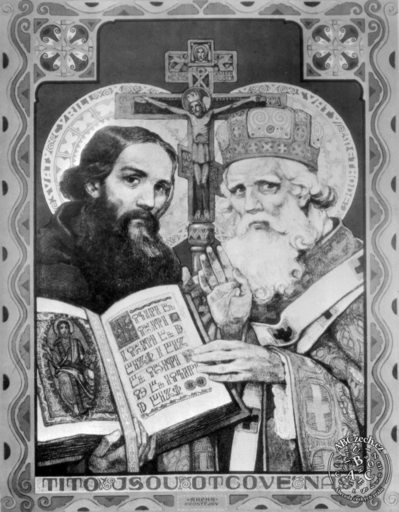
Brothers from Thessalonica who created the first Slavonic script, the Glagolitic alphabet, and made Old Church Slavonic a liturgical language, used in the previously exclusively Latin service. Thus they created the foundations of Slavonic literacy and culture. They are patron saints of Moravia.
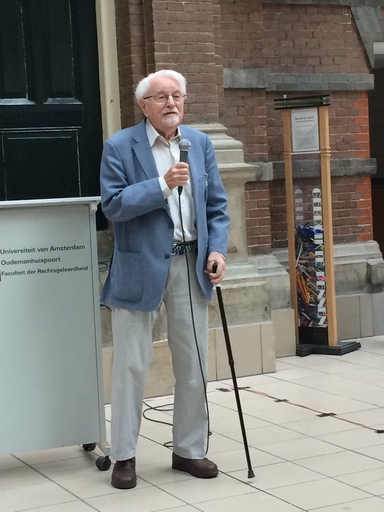
Czech linguist and theoretician of literature focusing on stylistics, narratology and the fictional worlds theory. He worked not only in Czechoslovakia, but also in the USA and most of all in Canada and in the Czech Republic.
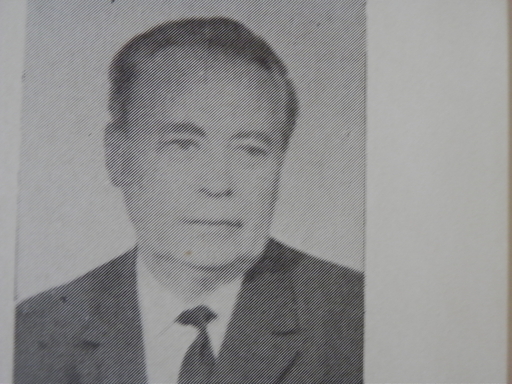
Czech linguist, prominent 20th-century Byzantinist and Paleo Slavist working in Czechoslovakia, the Federal Republic of Germany and the USA. His work was recognised abroad as well.
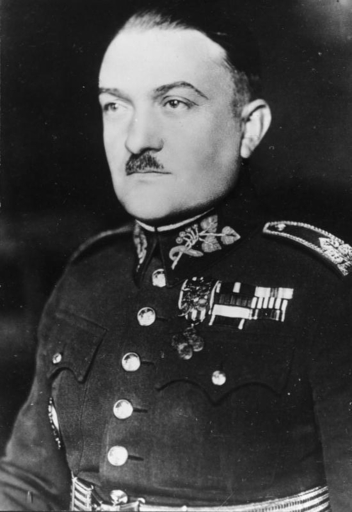
Czechoslovak general, participant of anti-Austrian and anti-Nazi resistance, president of the government of the Protectorate of Bohemia and Moravia. He was executed by the Nazis for his collaboration with the Czechoslovak resistance.
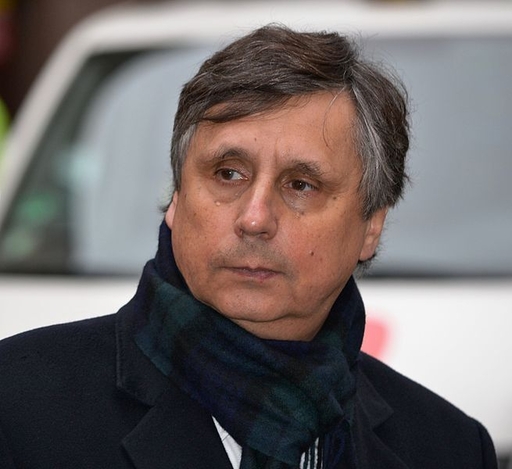
Prime Minister from April 2009 until July 2010 and a candidate for President of the Czech Republic in 2013.
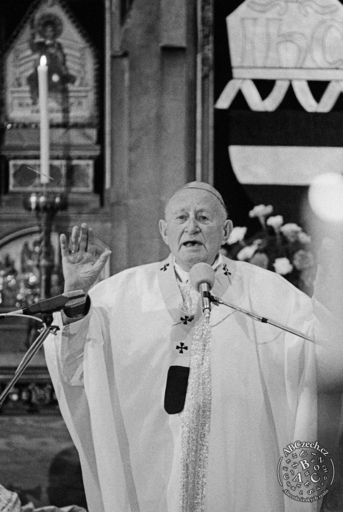
Archbishop of Prague and Primate of Bohemia in the period of Normalisation and the Velvet Revolution. His contribution to catechesis was also significant.
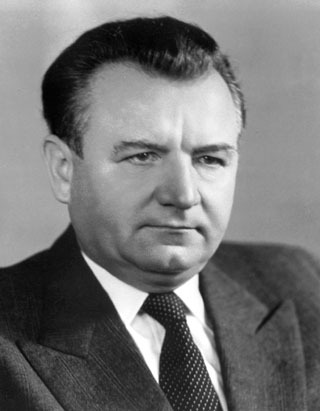
Czechoslovak politician, Prime Minister and President during communist dictatorship.
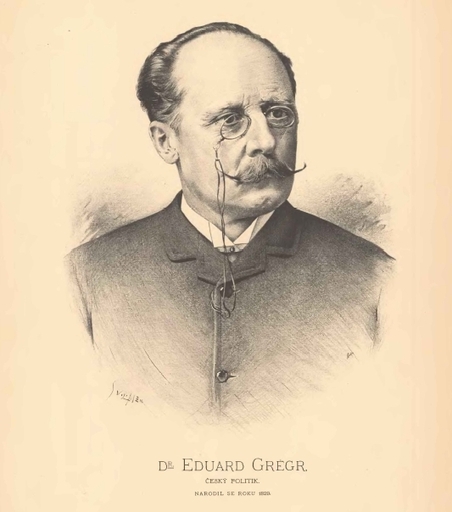
Czech physician, journalist and politician, older brother of Julius Grégr, with whom he became the leading figure of the editorial board of Národní listy. Representative of radical Czech politics of the second half of the 19th century, member of the National Liberal Party (also known as the Young Czech Party) and a member of the Land Diet and the Imperial Council.
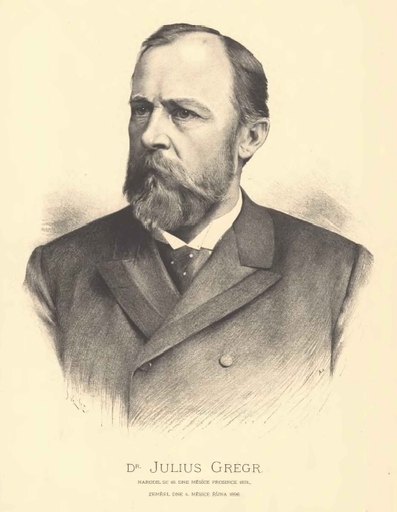
Czech lawyer and solicitor, a leading journalist and politician, cofounder of the so-called Young Czech Party and the Národní listy newspapers. He was one of the first Czech politicians to rely on newspapers in forming the public opinion.
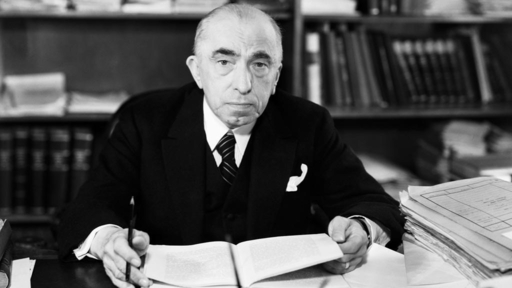
Czech lawyer and statesman, President of the Supreme Administration Court of Czechoslovakia, President of the Czechoslovak Republic and State President of the Protectorate of Bohemia and Moravia.
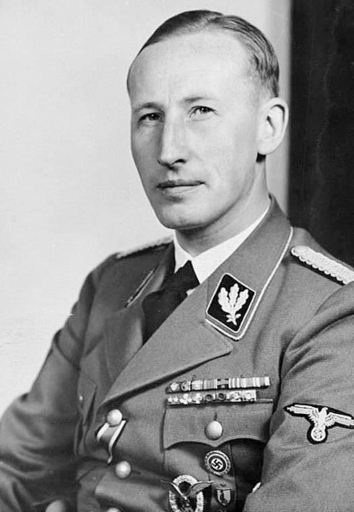
Acting Reich-Protector of the Protectorate of Bohemia and Moravia during the Second World War. He was the most notorious and hated Nazi in Czechoslovakia.
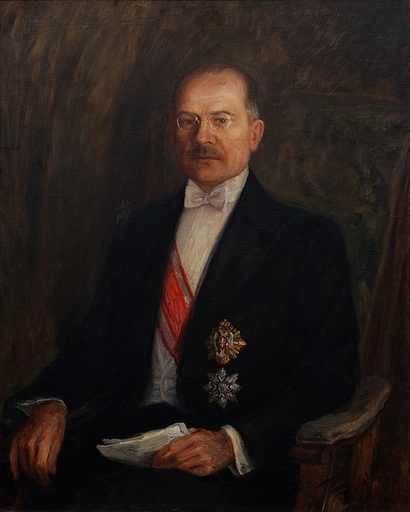
Czechoslovak politician, statesman and journalist originally from Slovakia, the tenth president of the government of the Czechoslovak Republic.
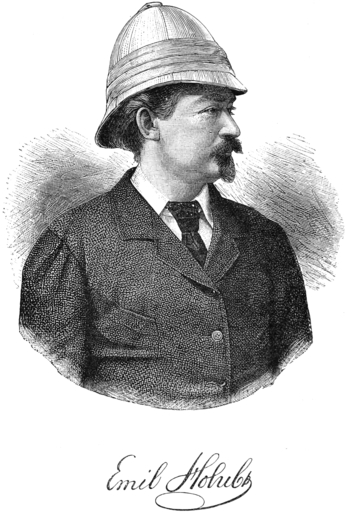
Czech physician, ethnographer and explorer, who went on two expeditions to Africa and created a large natural-scientific and ethnographic collection.
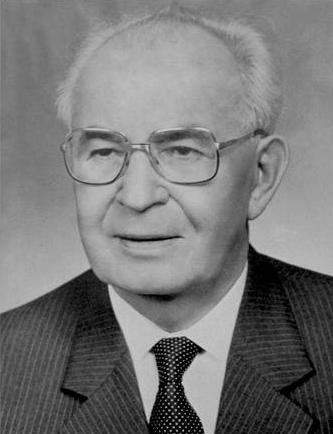
Czechoslovak politician and eighth president of Czechoslovakia. He is called Normalisation president.
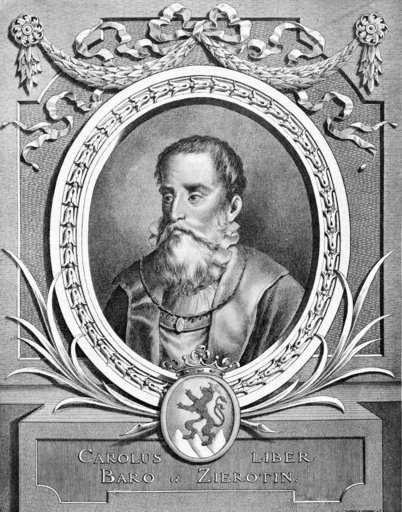
15 September 1564, Brandýs nad Orlicí – 9 October 1636, Přerov
Charles the Elder of Zierotin was the most prominent and respectable figures from Moravian non-Catholic nobility for several decades. A purposeful and deeply religious member of the Unity of the Brethren, he was exceptionally well-educated at Protestant schools and academies in Western Europe and he stood out among the Bohemian nobility as an individual with an unusually broad European outlook. In 1591, he entered the service of King Henry of Navarre, alongside whom he wanted to fight in the war between Huguenots and Catholics. However, when Henry converted to Catholicism in order to ascend the French throne, the disappointed Moravian nobleman returned home.
On the domestic political scene, Charles the Elder was a capable politician, lawyer and diplomat who commanded respect even in his adversaries. Until as late as 1599, when he withdrew due to false accusations of high treason, he held many Moravian offices. He described the crisis of contemporary society and his disappointment with the nobility’s selfish behaviour in his work Apologia or Defence of Mister George of Hodice (Apologie, neb obrana ku panu Jiříku z Hodic), which is one of the foremost monuments of Czech humanist literature. As a long-time critic of Rudolf II, in 1607 he supported the formation of the Moravian-Austrian-Hungarian coalition, which recognised the Emperor’s brother Matthias as their ruler. With his support, he held the office of the Moravian regional governor between 1608 and 1615. Three years later, as the recognised leader of the Moravian estates he rejected Moravian participation in the Bohemian Revolt; moreover, he sought to mediate peace between the rebels and the Emperor. His attempts to keep Moravia outside the war finally isolated him and after the Brno revolution, carried out by radical Moravian Protestants in June 1619, he could only watch, from home confinement, as his country shared the tragic fate of the revolt. He is still admired and criticised for his apparently unrealistic peace efforts.
Although after the Battle of White Mountain most Protestant noblemen were either imprisoned or exiled, the Emperor did not forget the Moravian leader’s peace efforts and Charles was thus one of a few non-Catholics allowed to stay in the country and keep at least a small property. He used his influence to support and protect persecuted members of the Unity of the Brethren; e.g. he provided shelter to Jan Amos Komenský. In 1629, he went into voluntary exile to Wrocław in Silesia, although he regularly returned to Moravia, where he died seven years later.
World-famous singer (dramatic soprano) active in the first half of the 20th century, especially in Vienna and New York.
2016-2020 ABCzech.cz - © Filozofická fakulta Univerzity Karlovy
Content from this website may be used without permission only for personal and non-commercial purposes and with the source cited. Any other use is allowed only with the authors' consent.
This web application Sonic.cgi meets GDPR requirements. Current information can be found here.